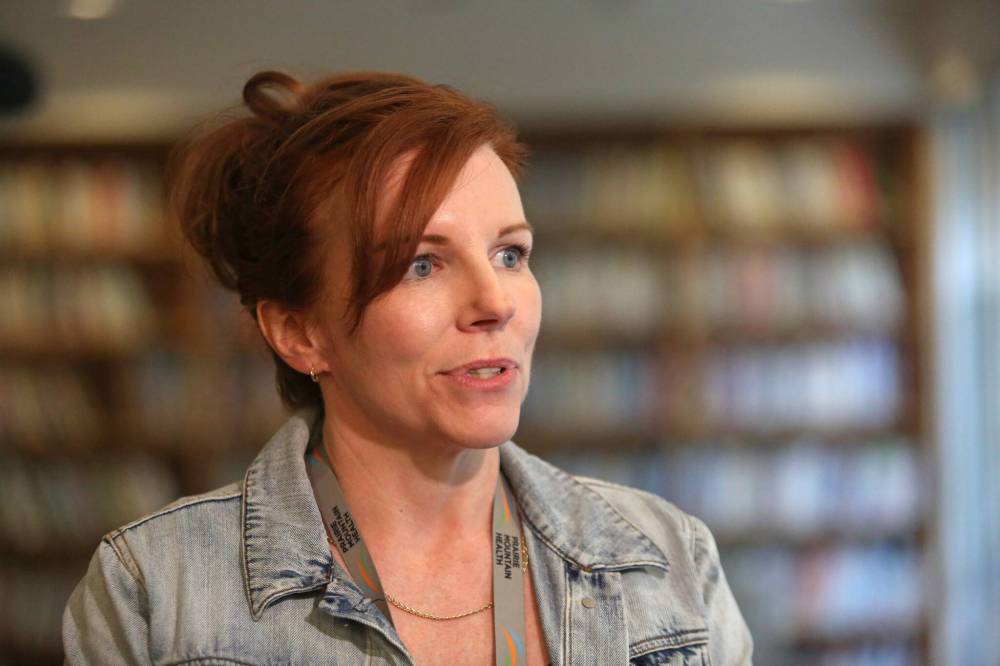Union flags issues with health-care aide hiring practices
Advertisement
Read this article for free:
or
Already have an account? Log in here »
We need your support!
Local journalism needs your support!
As we navigate through unprecedented times, our journalists are working harder than ever to bring you the latest local updates to keep you safe and informed.
Now, more than ever, we need your support.
Starting at $15.99 plus taxes every four weeks you can access your Brandon Sun online and full access to all content as it appears on our website.
Subscribe Nowor call circulation directly at (204) 727-0527.
Your pledge helps to ensure we provide the news that matters most to your community!
To continue reading, please subscribe:
Add Brandon Sun access to your Free Press subscription for only an additional
$1 for the first 4 weeks*
*Your next subscription payment will increase by $1.00 and you will be charged $20.00 plus GST for four weeks. After four weeks, your payment will increase to $24.00 plus GST every four weeks.
Read unlimited articles for free today:
or
Already have an account? Log in here »
Hey there, time traveller!
This article was published 01/02/2025 (372 days ago), so information in it may no longer be current.
While Treena Slate, the CEO of Prairie Mountain Health (PMH), works to reduce the number of agency nurses as ordered by the provincial government days ago, Kyle Ross, the president of the Manitoba Government Employees Union (MGEU), says “agency spending is also a big issue with health-care aides.”
“We’d like the government to address agency use period, not just focus on nurses,” Ross told the Sun.
“When we had health-care aide vacancy rates as high as 80 per cent in some places in 2024, we understood that agency needed to be used, but it’s becoming the norm. It’s basically privatizing our health-care system, and we’d really like to see a strong public system,” he said.

Prairie Mountain Health CEO Treena Slate. (Matt Goerzen/The Brandon Sun files)
From 2021 to 2024, PMH spent a total of $44.09 million on agencies to hire health-care aides. During the 2023–24 fiscal year, the amount was $20.9 million, and the year before it was $18.39 million.
These figures were provided to the Sun by the MGEU, which obtained the same through a request made via The Freedom of Information and Protection of Privacy Act (FIPPA).
“Agency is not an efficient use of our dollars,” Ross said. “We know that a good portion of agency dollars are probably spent on travel and not on hands-on care.”
“We’d much rather see those dollars invested to support these communities where people are actually doing the work to take care of vulnerable people.”
The documents from MGEU also showed that in 2024, the vacancy rate across the PMH region for health-care aides was more than 30 per cent, with vacant positions in some facilities ranging as high as 80 per cent.
It’s a big challenge for PMH, said Slate, because of the number of sites and facilities that are open 24-7, 365 days a year, “across a vast geographical area including remote and rural communities.” Slate also said that managers are continually assessing the required care needs in facilities.
When faced with a shortage of staff, “options are considered, including other available staff resources, and prioritizing care needs,” she said in an email to the Sun, adding, “We are committed to providing consistent high quality care.”
On Thursday, the Manitoba government ordered PMH to reduce its spending on agency nurses by 15 per cent by March 2026. In 2023, and for the first 10 months of 2024, PMH spent $45.8 million on agency nurses.
Slate said she commends the province for reducing reliance on agency staff, adding that the health region is working to reduce its dependency on private agencies by finding ways to draw agency staff to PMH.
“We continue to promote training opportunities in rural communities,” Slate said, adding, “some of our biggest successes come from training people locally.
“Utilizing the provincial travel nurse team is proving to be an effective way to reduce agency nurse usage,” Slate also wrote.
The provincial travel nurse team used to be called the provincial nursing float pool. It’s an opportunity for casual, part-time and full-time nurses to work at locations and facilities across the province. It offers flexibility, they receive incentive pay, paid travel time, mileage and accommodation for sites that are 50 kilometres away from a home address.
That’s exactly what needs to be created for health-care aides, said a PMH employee who has worked in personal care homes in Brandon and at the Brandon Regional Health Centre as a health-care aide for the last 18 years. He requested not to be identified.
“As health-care aides, we have casual pools and lists within each site. But if you want to be on another list, you have to call up each site.”
“It’s very complicated to get additional hours and get on a list outside of your site, so we need a provincial pool,” said the health-care aide.
Ross said a letter that he sent to Health Minister Uzoma Asagwara on Dec. 9, 2024, has not yet been answered. In a copy obtained by the Sun, Ross addressed his concerns about agency spending on health-care aides.
“It’s really about recruitment and retention and finding ways to get people to choose health care, we need workers to choose health care as a profession to help people,” Ross said.
“But with agency, it’s diverting people from their local communities, which to me, is not good for anyone.”
The Manitoba government has added 290 net-new health care aides to the public health-care system, said Asagwara, adding their government will “continue to work with Prairie Mountain Health leadership to staff up the region.”
“Progress takes time, but our government is committed to making Manitoba the best place to work in health care,” Asagwara said in an email to the Sun.
» mmcdougall@brandonsun.com
» enviromichele.bsky.social
